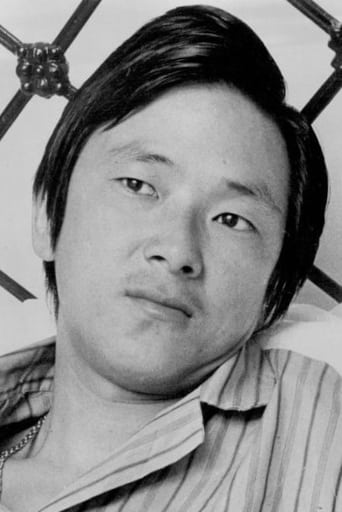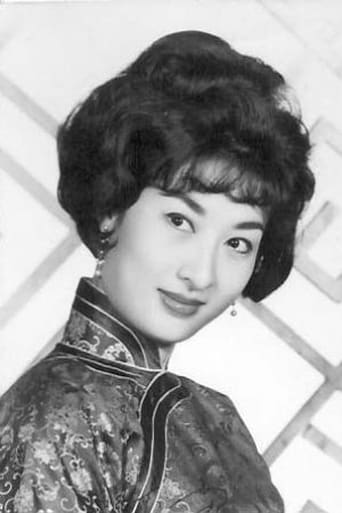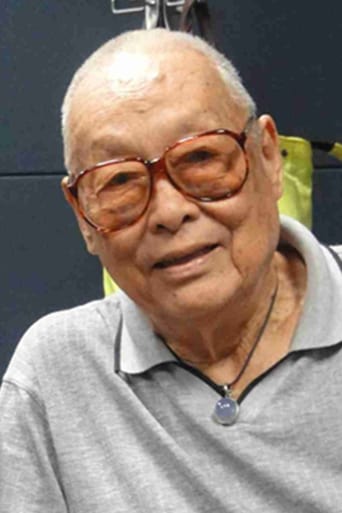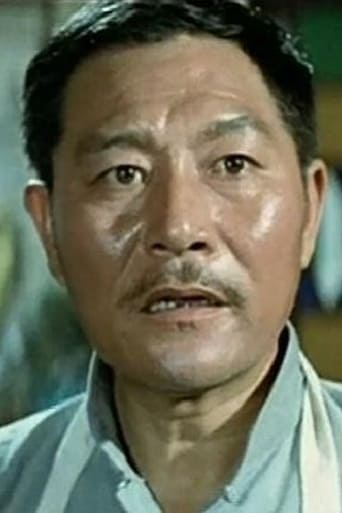Hayden Kane
There is, somehow, an interesting story here, as well as some good acting. There are also some good scenes
Leofwine_draca
THE ASSASSIN is an early film in the careers of star Jimmy Wang Yu and director Chang Cheh, made as a follow-up to their success of THE ONE-ARMED SWORDSMAN. This is a film which flirts with the usual action motifs of the Shaw Brothers studio in the 1960s, but for the most part is a slow-moving character-based drama, something sure to infuriate fans looking for martial arts-focused mayhem.The film starts off on a very strong footing indeed and I'd argue that the first half an hour is the best part of the production. It involves martial arts school rivalry (a plot that would inspire countless kung fu flicks in the 1970s), sword fights, betrayal, and heroic death. The action is breathlessly entertaining and extraordinarily bloody for its era. After this point, the story becomes more introspective and slows down quite considerably for the middle part. Wang Yu's character is little more than one-note despite attempts at depth and the overlong running time does nothing for the pace.Even worse, there's something of the dreaded romantic sub-plot in this one, unusual for Cheh who was well known for avoiding having women in his films wherever possible. There are some familiar faces around though, most notably Tien Peng who enjoys something away from his typical stock villain performance. The trappings of the genre are fine and the film is a visual treat; as with most Shaw features you could happily watch it muted and still get nearly the full experience. Things pick up for a classic and bloody heroic bloodshed-style climax which piles on the action and makes up somewhat for the slower scenes earlier on. THE ASSASSIN isn't so much a classic as a vital stepping stone in the careers of all those involved; much greatness was to follow for all of the main players here.
Brian Camp
THE ASSASSIN (1967) is one of a series of swordplay adventures starring Jimmy Wang Yu made at Hong Kong's Shaw Bros. studio in the 1960s. This one is less bloody and action-packed and more austere and character-driven, closer in tone and style to the Japanese samurai films of the era but with a very Chinese flavor in terms of the visual look and melodramatic feel.The emphasis is on the conflict between ambition and obligation with the latter playing a key role here in the life of a valiant swordsman in old China (2300 years ago!). Wang Yu plays Nieh Cheng, a champion sword-fighter who is forced to go into hiding when his school is attacked by political rivals and his teacher and all his fellow students killed. A year later he is sought out by Yen, a minister-in-exile (Tien Feng) who requires his services in a political assassination, one that will enable Nieh to avenge the death of his teacher. Despite the offer of great payment and a ceremony in which he becomes the minister's sworn brother, Nieh declines the job because he's the sole support of his mother and sister. Years later, after his mother has died and his sister is married, he seeks out the minister and accepts the job. But first he has to locate his old sweetheart (Chiao Chiao) to provide her with gifts, which she at first tearfully declines, and spend a night with her before he goes off on what is essentially a suicide mission.In the course of the film's two-hour length, there are really only four fight scenes, two of them quite short. The final action scene, as Wang Yu attacks the Palace to get at the Prime Minster is a bit far-fetched as he slashes his sword through dozens of soldiers and they are unable to stop him. He even does some high leaping and short flights in the air, a power he didn't display earlier in the film.Still, it's a compelling and rich film with strong characters, excellent acting and fascinating interplay of characters' social roles and the accompanying little rituals and ceremonies. It's all very well acted and beautifully photographed on a mix of studio sets and outdoor backlots. Viewers who like Japanese samurai films, many of which offer less action in favor of characters and relationships should like this also. It's not as bloody and stylized as other Shaw Bros. movies of the time nor is the melodrama as overwrought. HK action fans will probably prefer such later Wang Yu films as ONE-ARMED BOXER, BEACH OF THE WAR GODS and BLOOD OF THE DRAGON, although this one boasts a stronger story and more complex character.The only real problem here is a curious patched-together music score with some lyrical Chinese melodies and one lovely choral song intercut with a persistent annoying guitar riff, loud drum rolls and entire cues lifted wholesale from John Barry's score for the James Bond film YOU ONLY LIVE TWICE (also 1967). The Tai Seng VHS edition of this film is in Mandarin with English subtitles with a full-frame transfer that cuts off the subtitles on the sides, making some lines of dialogue a challenge to decipher.Addendum: (10/6/07) I have since watched the restored/remastered letter-boxed Region 3 DVD of this film from Celestial Pictures. It's beautiful. Seeing in its proper aspect ratio allows one to appreciate the formal qualities of the direction, the attention to visual detail and an eye for color, lighting and composition that weren't always given such free reign in Chang Cheh's numerous other films. Also, being able to read the subtitles in their entirety allows one to appreciate the concise, elegant writing (also by Chang Cheh) and the distillation of each dialogue scene to its essential points, establishing each character's position clearly and believably as a story of moral, filial and romantic obligation takes on epic proportions. All this is most evident in the scenes between Nie Zheng (as his name is spelled in the new subtitles) and the various women in his life, most notably his sweetheart, Xia Ying (Chiao Chiao), his sister, Nie Rong (Li Hsiang-Chun), and his mother (an actress I haven't been able to identify). Seeing it again, in this high-quality version, and being moved by it even more deeply, compels me to consider it one of the finest Shaw Bros. productions ever.As for the music, the original soundtrack does indeed contain the music cues from YOU ONLY LIVE TWICE, but they didn't bother me at all this time. Perhaps the restoration process involved smoothing over rough spots in the soundtrack as well, since the different parts of the score blend in so much better here and don't sound "patched-together" at all. THE ASSASSIN has something in common with Zhang Yimou's HERO (2002) and Chen Kaige's THE EMPEROR AND THE ASSASSIN (1998). All were based on incidents from Chinese history taking place around 300-400 B.C., and recorded in the early Chinese historical text, "Records of the Great Historian," by Sima Qian.





